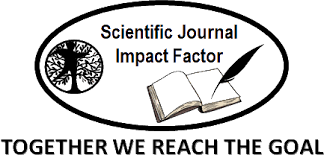TRANSLATING TRAUMA: A BOURDIEUSIAN ANALYSIS OF TRANSLATOR AGENCY IN THE VIRGIN OF SINJAR ‘ATHRAA SINJAR’ عذراء سنجار
DOI:
https://doi.org/10.58885/ijllis.v14i3.20aaKeywords:
translator agency, Bourdieu, habitus, illusio, symbolic violence, Yazidi women, trauma translation.Abstract
This paper employs Pierre Bourdieu’s sociological framework to examine the translator’s role in mediating symbolic power through six selected Arabic excerpts from عذراء سنجار (Athraa Sinjar). Two passages were chosen for each of three thematic clusters: (1) symbolic power and mass obedience. (2) dehumanization of Yazidi women, and (3) physical violence, and translated into English for close textual analysis. The study explores how the translator’s habitus informs linguistic choices, how varying forms of capital (cultural, social, symbolic) shape translation decisions, and how illusio guides the emotional and ethical investments underpinning translation practices. Through this reflexive analysis, the paper illuminates the translator as an agent navigating the literary field, negotiating power relations, and shaping the novel’s insertion into global discourses on minority trauma and cultural representation. The study contributes to translation sociology by offering a model for integrating translator agency with textual practice.
References
Alsabah, A. A. O. (2024). A socio-cultural perspective on translation activities in Iraq: A Bourdieusian account (Doctoral dissertation, University of Leeds). White Rose eTheses Online. https://etheses.whiterose.ac.uk/id/eprint/35989/
Bourdieu, P. (1977). Outline of a theory of practice. Cambridge University Press.
Bourdieu, P. (1993). The field of cultural production. Columbia University Press.
Bourdieu, P. (2000). Pascalian meditations. Stanford University Press.
Gouanvic, J.-M. (2005). A Bourdieusian theory of translation. The Translator, 11(2), 147–166. https://doi.org/10.1080/13556509.2005.10799198
Inghilleri, M. (2005). The sociology of Bourdieu and the construction of the ‘object’ in translation and interpreting studies. The Translator, 11(2), 125–145. https://doi.org/10.1080/13556509.2005.10799197
Inghilleri, M. (2011). Translators in war zones. Translation Studies, 4(2), 229–243. https://doi.org/10.1080/14781700.2011.562975
Sela-Sheffy, R. (2005). ‘How to be a (recognized) translator’. Target, 17(1), 1–26. https://doi.org/10.1075/target.17.1.01sel
Sela-Sheffy, R. (2008). The translator’s identity and the politics of translation. In M. Baker (Ed.), Routledge encyclopedia of translation studies (2nd ed.). Routledge.
Simeoni, D. (1998). The pivotal status of the translator’s habitus. Target, 10(1), 1–39. https://doi.org/10.1075/target.10.1.02sim
Wolf, M. (2007). Introduction: The emergence of a sociology of translation. MonTI, 1, 1–36. https://doi.org/10.6035/MonTI.2007.0.1
Downloads
Published
How to Cite
Issue
Section
License
Copyright (c) 2025 Author

This work is licensed under a Creative Commons Attribution 4.0 International License.
Declaration/Copyright transfer:
1. In consideration of the undertaking set out in paragraph 2, and upon acceptance by ANGLISTICUM for publication of the manuscript in the Journal, I/We hereby assign and transfer publication rights to ANGLISTICUM, whereas I/We retain the copyright for the manuscript. This assignment provides ANGLISTICUM the sole right and responsibility to publish the manuscript in its printed and online version, and/or in other media formats.
2. In consideration of this assignment, ANGLISTICUM hereby undertakes to prepare and publish the manuscript in the Journal, subject only to its right to refuse publication if there is a breach of the Author’s warranty in paragraph 4 or if there are other reasonable grounds.
3. Editors and the editorial board of ANGLISTICUM are empowered to make such editorial changes as may be necessary to make the Manuscript suitable for publication.
4. I/We hereby acknowledge that: (a) The manuscript submitted is an original work and that I/We participated in the work substantively and thus I/We hereby are prepared to take public responsibility for the work; (b) I/We hereby have seen and approved the manuscript as submitted and that the manuscript has not either been published, submitted or considered for publication elsewhere; (c) The text, illustration, and any other materials included in the manuscript do not infringe upon any existing copyright or other rights of anyone.
5. I/We hereby indemnify ANGLISTICUM and the respective Editors of the Journal as mentioned in paragraph 3, and hold them harmless from any loss, expense or damage occasioned by a claim or suit by a third party for copyright infringement, or any suit arising out of any breach of the foregoing warranties as a result of publication of the manuscript.














